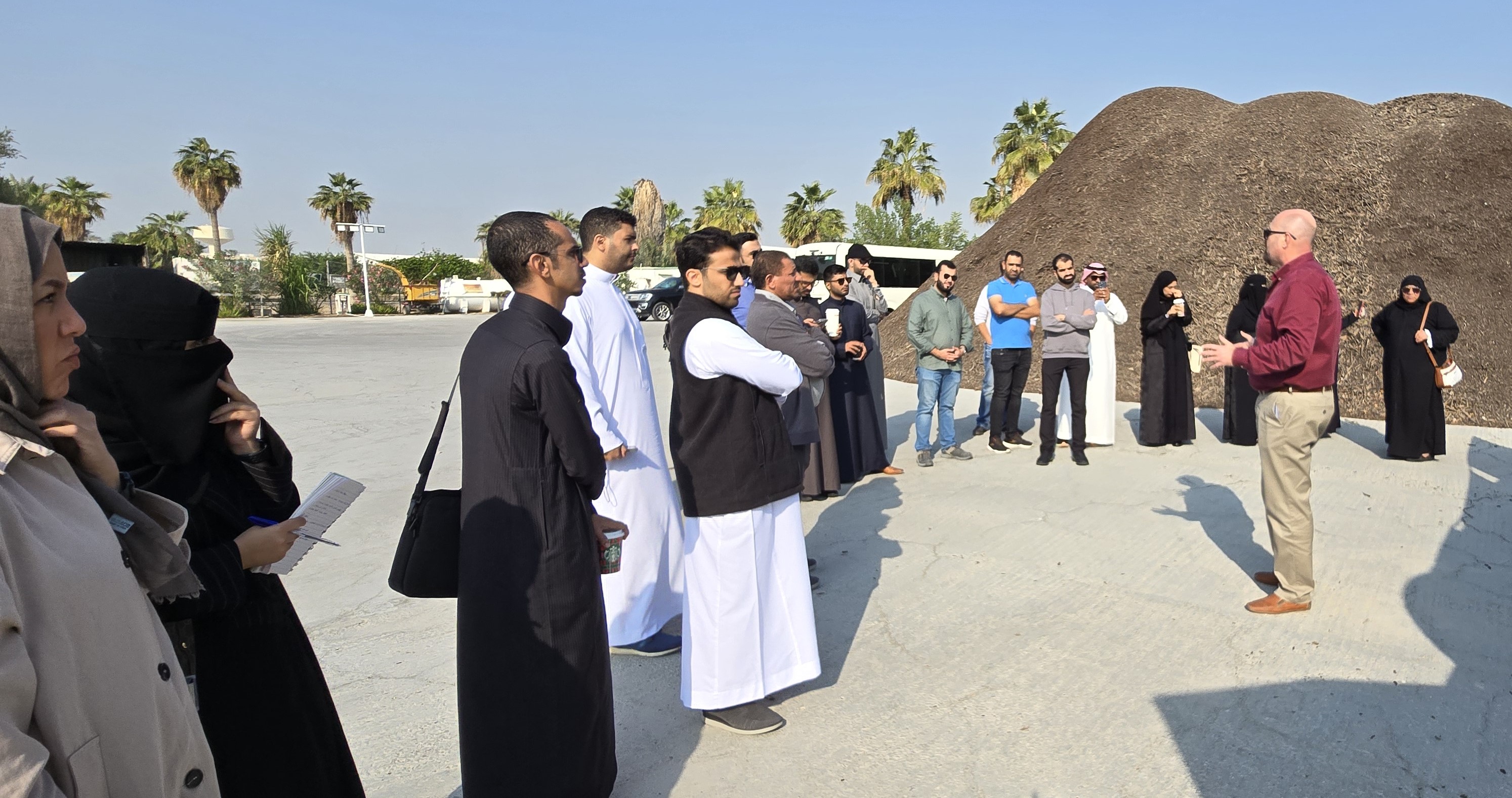
“AGU” Waste Management Diploma Students Explore Recycling Practices to Bridge Theory and Practice
Arabian Gulf University
28 Jan, 2025
The Professional Diploma Programme in Waste Management, offered by the College of Education and Administrative and Technical Sciences at the Arabian Gulf University (AGU), organised several field visits to recycling sites for various types of waste in the Kingdom of Bahrain. The objective was to enhance theoretical knowledge through practical application and experimentation within the professional diploma curriculum.
The students of the programme, offered by the college in collaboration with AGU’s Community Services, Consultation Training and Continuing Education Centre, examined the process of converting green agricultural waste into compost during two scientific visits. These visits were conducted at Horat Aali site and Askar landfill, in collaboration with Urbaser cleaning services company and the Ministry of Municipalities and Agriculture Affairs.
Dr Sumaya Yusuf, Assistant Professor of Environmental Engineering at the College and founder and coordinator of the programme, explained that the visits provided an in-depth look at the composting process, which is one of the most sustainable and globally widespread techniques known for its simplicity and ease of application.
She stated: “This technique is a vital biological method for processing green agricultural waste and biodegradable materials, such as certain components of food waste. Composting is an aerobic fermentation technique that requires specific conditions for successful implementation, including a humidity level of no less than 70 percent and a carbon-to-nitrogen ratio of no less than 20 and no more than 30. It also needs expansive land, although it can be executed in specially ventilated barrels with continuous aeration, accompanied by moisture and essential element monitoring. Separating waste at the source is a crucial factor in the success of this technique, ensuring high-quality outputs free from plastic and glass contamination.”
Dr Yusuf further added that these field visits enrich the knowledge base of the diploma students, who hail from various sectors across the GCC countries, including municipal, industrial, health and commercial sectors. She emphasised that waste management has become one of the most significant global environmental issues and a major challenge for urban cities worldwide, stressing that understanding environmental pollution and managing waste sustainably is essential.
“Diploma students must deeply grasp the importance of managing waste in an integrated and sustainable manner, following a circular recycling approach rather than a resource-exhaustive linear one. It is important to raise awareness about sustainable production and consumption in our region by learning from various successful experiences and projects,” Dr Yusuf added.
It is noteworthy that the Professional Diploma Programme in Waste Management receives direct support from the United Nations Environment Programme (UNEP) – West Asia Office and is accredited by the Chartered Institution of Wastes Management (CIWM) in the United Kingdom.
It is the first certified programme of its kind in the Gulf region and the Arab world, especially after receiving accreditation from the CIWM. The programme has graduated 56 elite experts in sustainable waste management, contributing to supporting sustainable visions and aspirations of the GCC countries towards achieving sustainable development.
